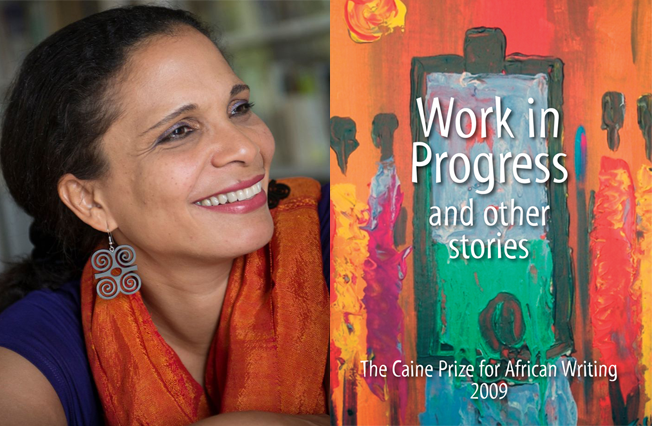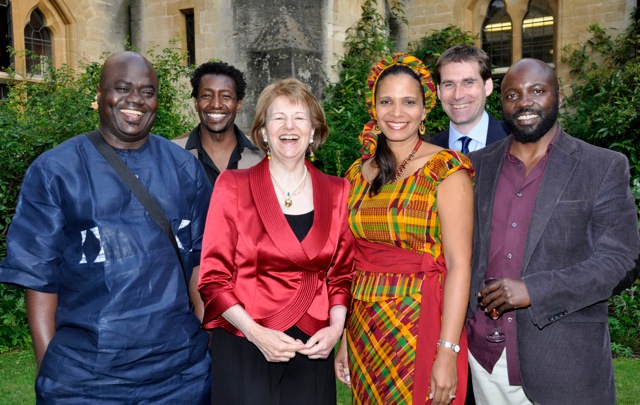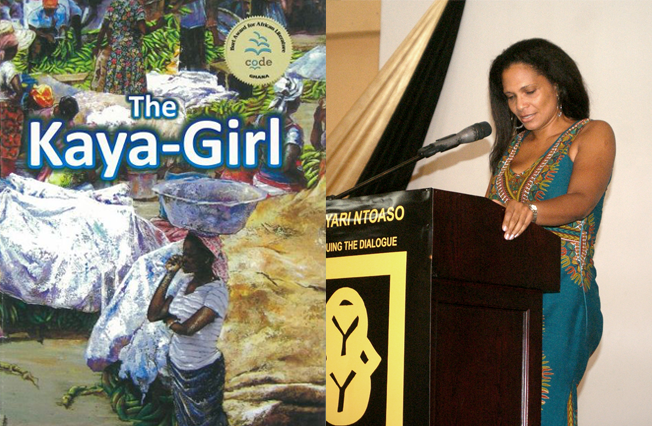Literature for the Young and Young at Heart
When the University of Iowa’s International Writing Program asked Ghanaian author Mamle Kabu what she likes most about being a writer in her country, she highlighted the literary renaissance.
“In the past few decades, it has become very exciting to be a writer in Ghana. There are new organisations to encourage drama, writing and the arts, and I’m part of one of these – the Writer’s Project – which provides a platform for young writers to make their voices heard.”
While Mamle was born and raised in Ghana, she left for the UK with her family in 1982, and only returned in 1992, after completing her education at the University of Cambridge. A decade’s absence made her acutely aware of the changes in her country.
“I got to know Ghana on my own terms, as an adult, which was different from growing up here. I saw more social and cultural complexity. It’s also a lot more commercialised, and sometimes I miss the simplicity and character that have been lost. I felt I had more opportunities here, in both my careers (development and writing), than in the UK.”
It’s amid this burgeoning literary landscape that Mamle wrote the young adult (YA) novel The Kaya-Girl, for which she won the Burt Award for African Literature in 2011. But why did she choose this genre?
“I’ve always wanted to write for children because reading was such an important part of my own childhood. I also wanted to compete for the Burt Award because winning literary prizes is one way to buy your own writing time.”
How important is this genre, especially as it’s often criticised for being superficial or for having adult content and themes?
“I think YA fiction is an important transition between children’s fiction and adult fiction. When children have outgrown their old books, but lack the maturity and experience to enjoy adult books, they could lose interest in reading if there is nothing in between. In terms of its content and themes, I think these are fluid concepts because what is age-appropriate often depends on the socio-cultural context. I like children’s and YA fiction that is interesting to both children and adults because adolescents enjoy discussing what they’re reading, which often opens up wider social and political issues.”
Mamle is also working on a novel for adults, based on her published short story, The End of Skill, which was nominated for the Caine Prize for African Writing in 2009.
“It’s about a young man from a traditional kente-weaving background who leaves it behind and reinvents himself in the city. It’s also about his love for a black American woman and the contrast between their journeys.”
Amid all this writing, is there ever time to read.
“I don’t have much time to read for enjoyment, but when I do, I often choose books by people I know. I recently finished Bom Boy by Yewande Omotoso. I read on my iPad and even on my phone sometimes. When I get sucked into a good story, I don’t remember what I’m reading it on.”
Mamle is one of the participating authors at the Franschhoek Literary Festival in May. What can we look forward to?
“I’ll be on a panel that’s examining YA fiction and its appeal not just to the youth but also to adults. I’ll also be weighing in on how writers create powerful female characters, and then there’s a panel on the passage and perils of being a black writer, and whether we can just write and escape the politics. I’m really looking forward to the festival.
If you’re a book-lover, you won’t want to miss this literary gathering. For more information on how to book, and hear Mamle Kabu speak, visit flf.co.za
Words by Sam Page
Images – Mamle Kabu


